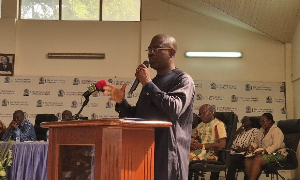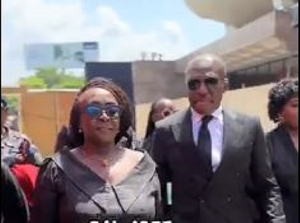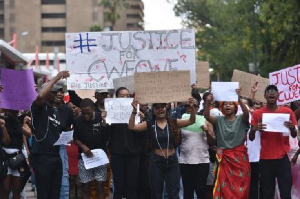 Ghanaian voters go to the polls on Thursday in a run-off of the presidential election with one prayer on their lips - peace.
Ghanaian voters go to the polls on Thursday in a run-off of the presidential election with one prayer on their lips - peace.
With a generally peaceful first round on 7 December, various groups and religious organisations have been appealing to party leaders to preach peace before, during and after the election.
"But for the tragic events in Bawku, Ghana would have chalked another first among African countries for peaceful elections...," the Ghana Institute of Economic Affairs (IEA) said.
About 10 people died when violence broke out at Bawku in the Upper East region during the 7 December presidential and parliamentary vote. The violence was triggered by an election official who refused to accept four ballot boxes brought to a collation centre without an Electoral Commission official escorting them.
The run-off is a contest between Vice President John Atta Mills of the National Democratic Congress (NDC) and John Agyekum Kufuor of the New Patriotic Party (NPP).
"Under no circumstances should Ghanaians be complacent that post-election violence can never happen in Ghana," the IEA, an independent think-tank, warned.
"It took a spark to ignite conflicts and crisis in Sierra Leone, Guinea, Senegal and Cote d'Ivoire," it pointed out in a full-page advert in the state-owned Daily Graphic newspaper following concerns about the dangerous use of ethnicity in the current campaign.
"The IEA is appealing to all leaders of the two political parties to be temperate in their statements and other civil society leaders to raise their voices about this disturbing development."
There are also persistent calls for a free, fair and transparent vote, devoid of intimidation, so that the result would be acceptable to both the winner and loser.
The country's Electoral Commission has come under pressure to conduct a clean election just as it did in the first round on 7 December.
"We appeal to the key national institutions, namely the Electoral Commission and security agencies, to continue to play their non-partisan roles which are very critical to the maintenance of national peace and security in this phase of our transition to a full-fledged democracy."
Some 10.7 million voters have their names on the register which, even the EC admits, is bloated by 1.5 million.
This is because of double registration when the voters' list was reopened early this year, and reluctance of people to come forward to remove the names of deceased voters.
Voters will cast their ballots in about 20,000 polling stations across the country.
The first round of the presidential election was inconclusive as none of the seven candidates polled the constitutionally required 50 percent plus one of the votes for outright victory.
The run-off is therefore taking place between the top two candidates - Mills and Kufour.
This will be the second time in the country's history that there will be a run-off in a presidential election. The first one was in 1979, which saw the late president Hilla Limann of the People's National Party (PNP) beating Victor Owusu of the Popular Front Party (PFP).
The winner of the vote will take over from President Jerry Rawlings who has ruled Ghana since his 31 December 1981 coup. It will also be the first time in Ghana's 43-year history that an elected leader will hand power to another elected leader.
All the five other presidential candidates in the 7 December vote have thrown their weight behind Kufuor. The opposition has campaigned vigorously on a platform of "change," a message, which appears to have gone down well with the voters.
This is reflected in the swing votes which saw Kufuor winning as much as 48 percent of the votes compared with less than 40 percent by Albert Adu Boahen (NPP) and Kufuor in 1992 and 1996, respectively.
The NPP made inroads deep into NDC's strongholds, winning 99 of the 200 parliamentary seats, up from 61 in 1996. It boycotted the 1992 parliamentary vote.
But whoever wins the vote on Thursday, he will be faced with several tasks such as the economy, satisfying the high expectations of the society, maintaining peace and reconciling the nation after a bruising divisive campaign.
General News of Tuesday, 26 December 2000
Source: Panafrican News Agency -by Mawusi Afele












